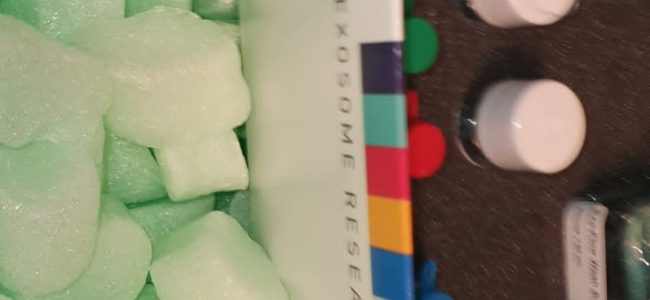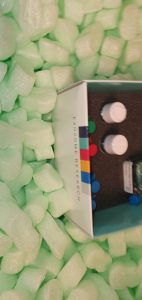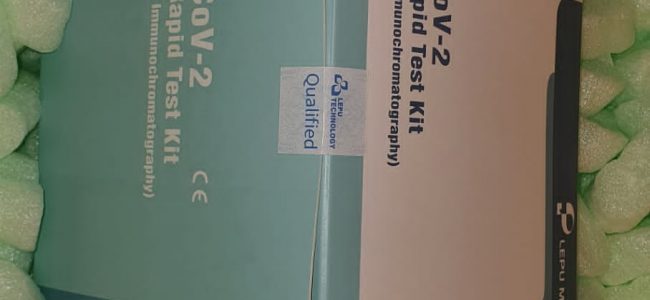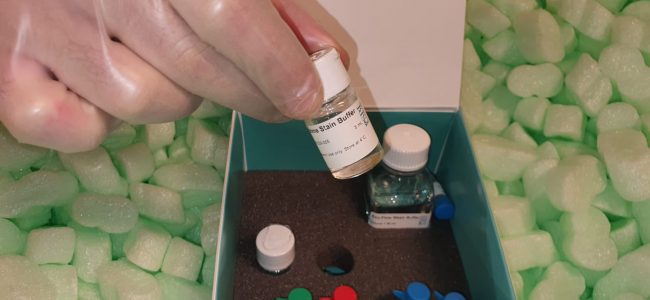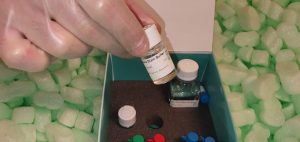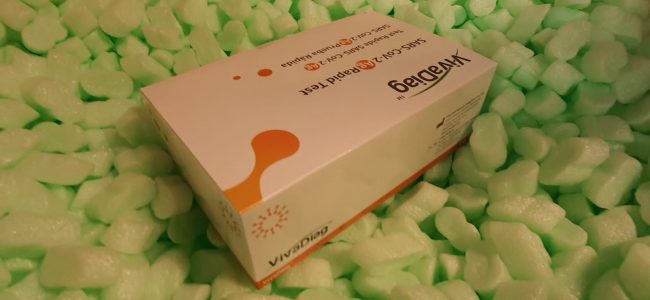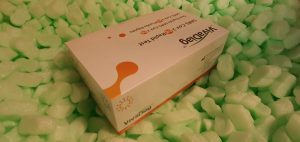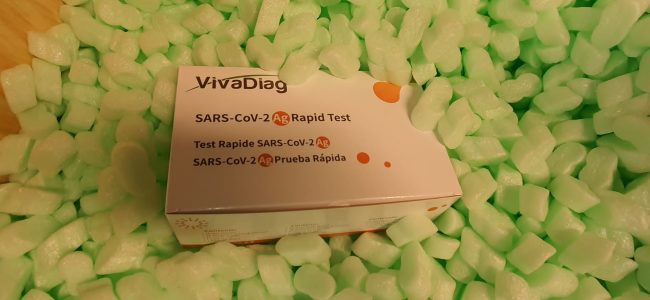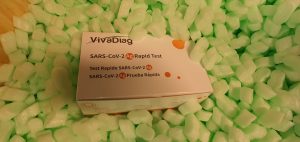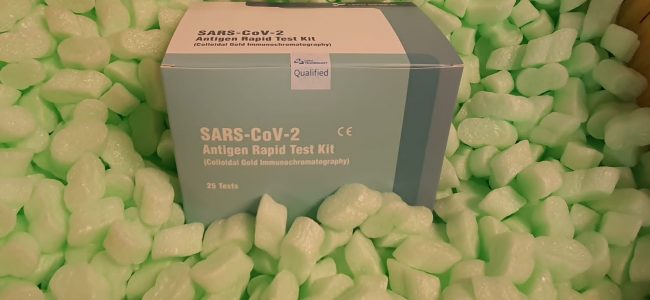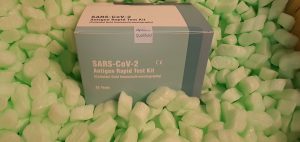Runs of homozygosity (ROH) are steady homozygous areas that usually exist in the DNA sequence of diploid organisms. Identifications of ROH resulting in discount in efficiency can present priceless perception into the genetic structure of advanced traits. Here, we evaluated genome-wide patterns of homozygosity and their affiliation with essential traits in Chinese Wagyu beef cattle.
We recognized a complete of 29,271 ROH segments from 462 animals. Within every animal, a median quantity of ROH was 63.36 whereas a median size was 62.19 Mb. To consider the enrichment of ROH throughout genomes, we initially recognized 280 ROH areas by merging ROH occasions throughout all people.
Of these, 9 areas containing 154 candidate genes, had been considerably related to six traits (physique peak, chest circumference, fats protection, backfat thickness, ribeye space, and carcass size; p < 0.01). Moreover, we discovered 26 consensus ROH areas with frequencies exceeding 10%, and a number of other areas overlapped with QTLs, that are related to physique weight, calving ease, and stillbirth. Among them, we noticed 41 candidate genes, together BCKDHB, MAB21L1, SLC2A13, FGFR3, FGFRL1, CPLX1, CTNNA1, CORT, CTNNBIP1, and NMNAT1, which have been beforehand reported to be associated to physique conformation, meat high quality, susceptibility, and reproductive traits. In abstract, we assessed genome-wide autozygosity patterns and inbreeding ranges in Chinese Wagyu beef cattle. Our examine recognized many candidate areas and genes overlapped with ROH for a number of essential traits, which could possibly be unitized to help the design of a variety mating technique in beef cattle.
The genomic variability of native Italian rooster breeds, which had been monitored beneath a conservation plan, was studied utilizing single nucleotide polymorphisms (SNPs) to grasp their genetic range and inhabitants construction. A complete of 582 samples from 23 native breeds and 4 business shares had been genotyped utilizing the Affymetrix 600 Ok Chicken SNP Array. In common, the degrees of genetic range, investigated by way of completely different approaches, had been lowest in the native rooster breeds in comparison with these in the business shares.
The stage of genomic inbreeding, primarily based on runs of homozygosity (FROH), was markedly completely different among the many breeds and ranged from 0.121 (Valdarnese) to 0.607 (Siciliana). In all breeds, brief runs of homozygosity (ROH) (<4 Mb in size) had been extra frequent than lengthy segments.
The patterns of genetic differentiation, model-based clustering, and neighbor networks confirmed that the majority breeds shaped non-overlapping clusters and had been clearly separate populations, which indicated the presence of gene move, particularly amongst breeds that originated from the identical geographical space.
Genetic spectrum of retinal dystrophies in Tunisia
We report the molecular foundation of the biggest Tunisian cohort with inherited retinal dystrophies (IRD) reported to this point, establish disease-causing pathogenic variants and describe genotype-phenotype correlations. A subset of 26 households from a cohort of 73 households with scientific analysis of autosomal recessive IRD (AR-IRD) excluding Usher syndrome was analyzed by entire exome sequencing and autozygosity mapping.
Causative pathogenic variants had been recognized in 50 households (68.4%), 42% of which had been novel. The most prevalent pathogenic variants had been noticed in ABCA4 (14%) and RPE65, CRB1 and CERKL (8% every). 26 variants (Eight novel and 18 recognized) in 19 genes had been recognized in 26 households (14 missense substitutions, 5 deletions, Four nonsense pathogenic variants and three splice website variants), with additional allelic heterogeneity arising from completely different pathogenic variants in the identical gene.
The most typical phenotype in our cohort is retinitis pigmentosa (23%) and cone rod dystrophy (23%) adopted by Leber congenital amaurosis (19.2%). We report the affiliation of new illness phenotypes. This analysis was carried out in Tunisian sufferers with IRD in order to delineate the genetic inhabitants structure.
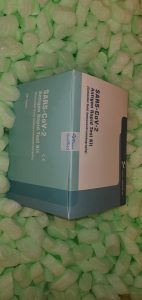
Shadow autozygosity mapping by linkage exclusion (SAMPLE): a easy technique to establish the genetic foundation of deadly autosomal recessive problems.
Autozygosity mapping has been invaluable for figuring out the genetic foundation of deadly autosomal recessive problems, however this strategy stays difficult as a result of DNA from affected people might typically be unavailable or of inadequate high quality for intensive molecular genetic research. To circumvent these difficulties, we developed a pc program known as “SAMPLE” (for shadow autozygosity mapping by linkage exclusion) to reinforce autozygosity mapping by way of the empirical evaluation of haplotypes of unaffected people in consanguineous households.
Single nucleotide polymorphism (SNP) genotyping of unaffected people in advanced consanguineous pedigrees is used to deduce restricted chromosomal areas suitable with linkage to a possible illness locus, and to permit the instant prioritization of potential areas of curiosity. Further restricted genotyping then permits the speedy affirmation and advantageous mapping of a illness locus.
We display the utility of this technique by utilizing genotyping information from solely mother and father and unaffected siblings, in three consanguineous households affected with Meckel-Gruber syndrome, to accurately infer the situation of the MKS3/TMEM67 locus on chromosome 8q22.1.
) Recombinant Mouse Prostate stem cell antigen (Psca) |
|
CSB-YP018840MO |
Cusabio |
5939 mg |
Ask for price |
) Recombinant Mouse Prostate stem cell antigen(Psca) |
|
AP72740 |
SAB |
each |
Ask for price |
|
|
) Recombinant Mouse Prostate stem cell antigen (Psca) |
|
RPC20241-100ug |
Biomatik Corporation |
100ug |
EUR 569.8 |
) Recombinant Mouse Prostate stem cell antigen (Psca) |
|
RPC20241-20ug |
Biomatik Corporation |
20ug |
EUR 353.4 |
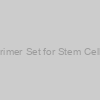 StemTAG PCR Primer Set for Stem Cell Characterization |
|
CBA-303 |
Cell Biolabs |
1 kit |
EUR 470.4 |
|
Description: StemTAG PCR Primer Set for Stem Cell Characterization includes 7 primer pairs: Oct-4, NANOG, AFP, Flk-1, and NCAM, plus GAPDH and beta-actin as controls. |
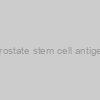 Prostate stem cell antigen |
|
AP86675 |
SAB |
1mg |
EUR 2640 |
|
|
 Prostate stem cell antigen |
|
AP87071 |
SAB |
1mg |
EUR 2640 |
|
|
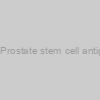 Mouse Psca/ Prostate stem cell antigen ELISA Kit |
|
E1215Mo |
Sunlong |
1 Kit |
EUR 543 |
|
|
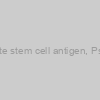 Mouse Prostate stem cell antigen, Psca ELISA KIT |
|
ELI-22375m |
Lifescience Market |
96 Tests |
EUR 1038 |
 ELISA Kit) Mouse Prostate stem cell antigen (PSCA) ELISA Kit |
|
abx520719-96tests |
Abbexa |
96 tests |
EUR 886.8 |
|
|
 ELISA Kit) Mouse Prostate stem cell antigen (PSCA) ELISA Kit |
|
RK13577 |
Abclonal |
96T |
EUR 280 |
 Mouse Psca / Prostate stem cell antigen ELISA Kit |
|
E8693m |
EIAab |
96T |
EUR 776 |
 Total Protein - Murine Embryonic Stem Cell Line D3 |
|
CBA-305 |
Cell Biolabs |
500 ?g |
EUR 414 |
Description: - Isolated from mouse ES-D3 cell line
- Presented as 500 µg at 1 mg/mL in NP-40 Solubilization Buffer
|
 ELISA Kit) CytoSelect Proliferating Cell Nuclear Antigen (PCNA) ELISA Kit |
|
CBA-254 |
Cell Biolabs |
96 assays |
EUR 672 |
|
Description: Cell Biolabs? CytoSelect Proliferating Cell Nuclear Antigen (PCNA) ELISA Kit is an enzyme immunoassay developed for the detection and quantitation of PCNA from nuclear and whole cell extracts. The kit detects PCNA from mouse, rat and human, and has a detection sensitivity limit of 12.5 ng/mLPCNA. Each kit provides sufficient reagents to perform up to 96 assays including standard curve and unknown samples. |
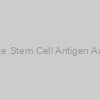 Prostate Stem Cell Antigen Antibody |
|
33476 |
SAB |
100ul |
EUR 319 |
 Prostate Stem Cell Antigen Antibody |
|
33476-100ul |
SAB |
100ul |
EUR 302.4 |
 Prostate Stem Cell Antigen Antibody |
|
33476-50ul |
SAB |
50ul |
EUR 224.4 |
 Prostate Stem Cell Antigen Antibody |
|
E033476 |
EnoGene |
100μg/100μl |
EUR 255 |
|
Description: Available in various conjugation types. |
 Prostate Stem Cell Antigen Antibody |
|
E19-8709-1 |
EnoGene |
50ug/50ul |
EUR 145 |
|
Description: Available in various conjugation types. |
 Prostate Stem Cell Antigen Antibody |
|
E19-8709-2 |
EnoGene |
100ug/100ul |
EUR 225 |
|
Description: Available in various conjugation types. |
 Prostate Stem Cell Antigen Antibody |
|
E11-0310C |
EnoGene |
100μg/100μl |
EUR 225 |
|
Description: Available in various conjugation types. |
 Prostate Stem Cell Antigen Antibody |
|
DF8709 |
Affbiotech |
200ul |
EUR 420 |
 Prostate Stem Cell Antigen Antibody |
|
8C0310 |
AAT Bioquest |
50ug |
EUR 368 |
|
Description: Prostate Stem Cell Antigen Antibody |
 OPCA01291-20UG - Recombinant Mouse Prostate stem cell antigen |
|
OPCA01291-20UG |
Aviva Systems Biology |
20ug |
EUR 315 |
|
|
 OPCA01291-100UG - Recombinant Mouse Prostate stem cell antigen |
|
OPCA01291-100UG |
Aviva Systems Biology |
100ug |
EUR 462 |
|
|
 OPCA01291-500UG - Recombinant Mouse Prostate stem cell antigen |
|
OPCA01291-500UG |
Aviva Systems Biology |
500ug |
EUR 1276 |
|
|
 Antibody) Prostate stem cell antigen (PSCA) Antibody |
|
20-abx325516 |
Abbexa |
-
Ask for price
-
Ask for price
|
|
|
|
 Antibody) Prostate Stem Cell Antigen (PSCA) Antibody |
|
abx433189-200ul |
Abbexa |
200 ul |
EUR 343.2 |
|
|
 Antibody) Prostate Stem Cell Antigen (PSCA) Antibody |
|
20-abx320478 |
Abbexa |
-
Ask for price
-
Ask for price
|
|
|
|
 Antibody) Prostate stem cell antigen (PSCA) Antibody |
|
abx331721-100ul |
Abbexa |
100 ul |
EUR 510 |
|
|
 Antibody) Prostate stem cell antigen (PSCA) Antibody |
|
20-abx211961 |
Abbexa |
-
Ask for price
-
Ask for price
|
|
|
|
 Antibody) Prostate stem cell antigen (PSCA) Antibody |
|
20-abx212351 |
Abbexa |
-
Ask for price
-
Ask for price
|
|
|
|
 Antibody) Prostate Stem Cell Antigen (PSCA) Antibody |
|
abx236848-100ug |
Abbexa |
100 ug |
EUR 661.2 |
|
|
 Antibody) Prostate Stem Cell Antigen (PSCA) Antibody |
|
20-abx114737 |
Abbexa |
-
Ask for price
-
Ask for price
|
|
|
|
 Antibody) Prostate Stem Cell Antigen (PSCA) Antibody |
|
20-abx102687 |
Abbexa |
-
Ask for price
-
Ask for price
-
Ask for price
-
Ask for price
-
Ask for price
|
- 100 ug
- 10 ug
- 1 mg
- 200 ug
- 50 ug
|
|
|
 Antibody) Prostate Stem Cell Antigen (PSCA) Antibody |
|
20-abx102688 |
Abbexa |
-
Ask for price
-
Ask for price
-
Ask for price
-
Ask for price
-
Ask for price
|
- 100 ug
- 10 ug
- 1 mg
- 200 ug
- 50 ug
|
|
|
 Antibody) Prostate Stem Cell Antigen (PSCA) Antibody |
|
20-abx132387 |
Abbexa |
-
Ask for price
-
Ask for price
-
Ask for price
-
Ask for price
-
Ask for price
|
- 100 ug
- 1 mg
- 200 ug
- 20 ug
- 50 ug
|
|
|
 Antibody) Prostate Stem Cell Antigen (PSCA) Antibody |
|
20-abx008545 |
Abbexa |
-
Ask for price
-
Ask for price
-
Ask for price
|
|
|
|
 Antibody) Prostate Stem Cell Antigen (PSCA) Antibody |
|
20-abx013183 |
Abbexa |
-
Ask for price
-
Ask for price
-
Ask for price
-
Ask for price
|
- 100 ug
- 10 ug
- 200 ug
- 300 µg
|
|
|
 Antibody) Prostate Stem Cell Antigen (PSCA) Antibody |
|
abx027872-400ul |
Abbexa |
400 ul |
EUR 627.6 |
|
|
 Antibody) Prostate Stem Cell Antigen (PSCA) Antibody |
|
abx027872-80l |
Abbexa |
80 µl |
EUR 343.2 |
|
|
, Antibody) Prostate Stem Cell Antigen (PSCA), Antibody |
|
GWB-B3D35D |
GenWay Biotech |
7 ml |
Ask for price |
, Antibody) Prostate Stem Cell Antigen (PSCA), Antibody |
|
GWB-983A18 |
GenWay Biotech |
1 ml |
Ask for price |
 Antibody) Prostate Stem Cell Antigen (PSCA) Antibody |
|
abx004291-100l |
Abbexa |
100 µl |
EUR 400 |
 Antibody) Prostate Stem Cell Antigen (PSCA) Antibody |
|
abx004291-20l |
Abbexa |
20 µl |
EUR 175 |
 Antibody) Prostate Stem Cell Antigen (PSCA) Antibody |
|
abx004291-50l |
Abbexa |
50 µl |
EUR 275 |
 Antibody) Prostate Stem Cell Antigen (PSCA) Antibody |
|
abx013183-100g |
Abbexa |
100 µg |
EUR 237.5 |
 Antibody) Prostate Stem Cell Antigen (PSCA) Antibody |
|
abx013183-10g |
Abbexa |
10 µg |
EUR 43.75 |
 Antibody) Prostate Stem Cell Antigen (PSCA) Antibody |
|
abx013183-200g |
Abbexa |
200 µg |
EUR 312.5 |
 Antibody) Prostate Stem Cell Antigen (PSCA) Antibody |
|
abx236848-100g |
Abbexa |
100 µg |
EUR 350 |
 Antibody) Prostate Stem Cell Antigen (PSCA) Antibody |
|
abx114737-100l |
Abbexa |
100 µl |
EUR 612.5 |
 Antibody) Prostate Stem Cell Antigen (PSCA) Antibody |
|
abx132387-01mg |
Abbexa |
0.1 mg |
EUR 275 |
 Antibody) Prostate Stem Cell Antigen (PSCA) Antibody |
|
abx102687-100l |
Abbexa |
100 µl |
EUR 275 |
 Antibody) Prostate Stem Cell Antigen (PSCA) Antibody |
|
abx102687-1ml |
Abbexa |
1 ml |
EUR 750 |
 Antibody) Prostate Stem Cell Antigen (PSCA) Antibody |
|
abx102687-200l |
Abbexa |
200 µl |
EUR 337.5 |
 Antibody) Prostate Stem Cell Antigen (PSCA) Antibody |
|
abx102688-100l |
Abbexa |
100 µl |
EUR 275 |
 Antibody) Prostate Stem Cell Antigen (PSCA) Antibody |
|
abx102688-1ml |
Abbexa |
1 ml |
EUR 750 |
 Antibody) Prostate Stem Cell Antigen (PSCA) Antibody |
|
abx102688-200l |
Abbexa |
200 µl |
EUR 337.5 |
 Antibody) Prostate Stem Cell Antigen (PSCA) Antibody |
|
abx027872-400l |
Abbexa |
400 µl |
EUR 518.75 |
 Antibody) Prostate stem cell antigen (PSCA) Antibody |
|
abx211961-100l |
Abbexa |
100 µl |
EUR 350 |
 Antibody) Prostate stem cell antigen (PSCA) Antibody |
|
abx211961-50l |
Abbexa |
50 µl |
EUR 250 |
 Antibody) Prostate stem cell antigen (PSCA) Antibody |
|
abx212351-100l |
Abbexa |
100 µl |
EUR 350 |
 Antibody) Prostate stem cell antigen (PSCA) Antibody |
|
abx212351-50l |
Abbexa |
50 µl |
EUR 250 |
 Antibody) Prostate Stem Cell Antigen (PSCA) Antibody |
|
abx320478-100l |
Abbexa |
100 µl |
EUR 350 |
 Antibody) Prostate Stem Cell Antigen (PSCA) Antibody |
|
abx320478-50l |
Abbexa |
50 µl |
EUR 237.5 |
 Antibody) Prostate stem cell antigen (PSCA) Antibody |
|
abx325516-100g |
Abbexa |
100 µg |
EUR 250 |
 Antibody) Prostate stem cell antigen (PSCA) Antibody |
|
abx325516-50g |
Abbexa |
50 µg |
EUR 187.5 |
 Antibody) Prostate Stem Cell Antigen (PSCA) Antibody |
|
abx433189-100g |
Abbexa |
100 µg |
EUR 387.5 |
) Human Prostate stem cell antigen (PSCA) |
|
1-CSB-YP018840HU |
Cusabio |
-
Ask for price
-
Ask for price
-
Ask for price
-
Ask for price
-
Ask for price
-
Ask for price
|
- 100ug
- 10ug
- 1MG
- 200ug
- 500ug
- 50ug
|
|
|
|
Description: Recombinant Human Prostate stem cell antigen(PSCA) expressed in Yeast |
) Human Prostate stem cell antigen (PSCA) |
|
1-CSB-EP018840HU |
Cusabio |
-
Ask for price
-
Ask for price
-
Ask for price
-
Ask for price
-
Ask for price
-
Ask for price
|
- 100ug
- 10ug
- 1MG
- 200ug
- 500ug
- 50ug
|
|
|
|
Description: Recombinant Human Prostate stem cell antigen(PSCA) expressed in E.coli |
) Human Prostate stem cell antigen (PSCA) |
|
1-CSB-EP018840HUa0 |
Cusabio |
-
Ask for price
-
Ask for price
-
Ask for price
-
Ask for price
-
Ask for price
-
Ask for price
|
- 100ug
- 10ug
- 1MG
- 200ug
- 500ug
- 50ug
|
|
|
|
Description: Recombinant Human Prostate stem cell antigen(PSCA) expressed in E.coli |
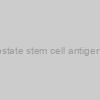 Recombinant Mouse Prostate stem cell antigen Protein, His, Yeast-1mg |
|
QP9353-ye-1mg |
EnQuireBio |
1mg |
EUR 2763.6 |
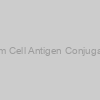 Prostate Stem Cell Antigen Conjugated Antibody |
|
C33476 |
SAB |
100ul |
EUR 476.4 |
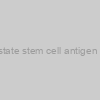 Recombinant Mouse Prostate stem cell antigen Protein, His, Yeast-100ug |
|
QP9353-ye-100ug |
EnQuireBio |
100ug |
EUR 685.2 |
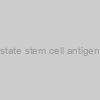 Recombinant Mouse Prostate stem cell antigen Protein, His, Yeast-10ug |
|
QP9353-ye-10ug |
EnQuireBio |
10ug |
EUR 326.4 |
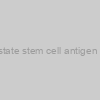 Recombinant Mouse Prostate stem cell antigen Protein, His, Yeast-200ug |
|
QP9353-ye-200ug |
EnQuireBio |
200ug |
EUR 1077.6 |
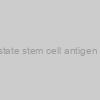 Recombinant Mouse Prostate stem cell antigen Protein, His, Yeast-500ug |
|
QP9353-ye-500ug |
EnQuireBio |
500ug |
EUR 1806 |
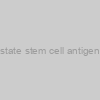 Recombinant Mouse Prostate stem cell antigen Protein, His, Yeast-50ug |
|
QP9353-ye-50ug |
EnQuireBio |
50ug |
EUR 424.8 |
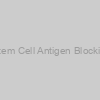 Prostate Stem Cell Antigen Blocking Peptide |
|
DF8709-BP |
Affbiotech |
1mg |
EUR 234 |
) Recombinant Prostate Stem Cell Antigen (PSCA) |
|
4-RPC735Hu01 |
Cloud-Clone |
-
Ask for price
-
Ask for price
-
Ask for price
-
Ask for price
-
Ask for price
-
Ask for price
-
Ask for price
|
- 100 ug
- 10ug
- 1 mg
- 200 ug
- 500 ug
- 50ug
- 5 mg
|
|
|
|
Description: Recombinant Human Prostate Stem Cell Antigen expressed in: E.coli |
) Recombinant Prostate Stem Cell Antigen (PSCA) |
|
RPC735Hu02 |
Cloud-Clone |
10ug |
EUR 168 |
) Recombinant Prostate Stem Cell Antigen (PSCA) |
|
4-RPC735Hu02 |
Cloud-Clone |
-
Ask for price
-
Ask for price
-
Ask for price
-
Ask for price
-
Ask for price
-
Ask for price
-
Ask for price
|
- 100 ug
- 10ug
- 1 mg
- 200 ug
- 500 ug
- 50ug
- 5 mg
|
|
|
|
Description: Recombinant Human Prostate Stem Cell Antigen expressed in: E.coli |
 Antibody (FITC)) Prostate Stem Cell Antigen (PSCA) Antibody (FITC) |
|
20-abx274396 |
Abbexa |
-
Ask for price
-
Ask for price
-
Ask for price
-
Ask for price
-
Ask for price
|
- 100 ug
- 10 ug
- 1 mg
- 200 ug
- 50 ug
|
|
|
 Antibody (FITC)) Prostate Stem Cell Antigen (PSCA) Antibody (FITC) |
|
20-abx274397 |
Abbexa |
-
Ask for price
-
Ask for price
-
Ask for price
-
Ask for price
-
Ask for price
|
- 100 ug
- 10 ug
- 1 mg
- 200 ug
- 50 ug
|
|
|
 Antibody (FITC)) Prostate Stem Cell Antigen (PSCA) Antibody (FITC) |
|
abx274397-100tests |
Abbexa |
100 tests |
EUR 437.5 |
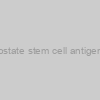 Human Prostate stem cell antigen ELISA Kit |
|
EK4789 |
SAB |
96 tests |
EUR 739 |
|
|
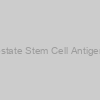 Human Prostate Stem Cell Antigen ELISA Kit |
|
IHUPSCAKT |
Innovative research |
each |
EUR 733 |
|
|
|
Description: Human Prostate Stem Cell Antigen ELISA Kit |
 Antibody (Biotin)) Prostate Stem Cell Antigen (PSCA) Antibody (Biotin) |
|
20-abx274360 |
Abbexa |
-
Ask for price
-
Ask for price
-
Ask for price
-
Ask for price
-
Ask for price
|
- 100 ug
- 10 ug
- 1 mg
- 200 ug
- 50 ug
|
|
|
 Antibody (Biotin)) Prostate Stem Cell Antigen (PSCA) Antibody (Biotin) |
|
20-abx272292 |
Abbexa |
-
Ask for price
-
Ask for price
-
Ask for price
-
Ask for price
-
Ask for price
|
- 100 ug
- 10 ug
- 1 mg
- 200 ug
- 50 ug
|
|
|
 Antibody (Biotin)) Prostate Stem Cell Antigen (PSCA) Antibody (Biotin) |
|
abx272292-1ml |
Abbexa |
1 ml |
EUR 825 |
 Antibody (Biotin)) Prostate Stem Cell Antigen (PSCA) Antibody (Biotin) |
|
abx272292-200l |
Abbexa |
200 µl |
EUR 362.5 |
 Protein) Human Prostate Stem Cell Antigen (PSCA) Protein |
|
20-abx068705 |
Abbexa |
-
Ask for price
-
Ask for price
-
Ask for price
-
Ask for price
-
Ask for price
|
- 100 ug
- 10 ug
- 1 mg
- 200 ug
- 50 ug
|
|
|
 Protein) Human Prostate Stem Cell Antigen (PSCA) Protein |
|
20-abx068706 |
Abbexa |
-
Ask for price
-
Ask for price
-
Ask for price
-
Ask for price
-
Ask for price
|
- 100 ug
- 10 ug
- 1 mg
- 200 ug
- 50 ug
|
|
|
 Protein) Human Prostate Stem Cell Antigen (PSCA) Protein |
|
abx068705-20g |
Abbexa |
20 µg |
EUR 387.5 |
 Protein) Human Prostate Stem Cell Antigen (PSCA) Protein |
|
abx068705-5g |
Abbexa |
5 µg |
EUR 212.5 |
 Protein) Human Prostate Stem Cell Antigen (PSCA) Protein |
|
abx068706-20g |
Abbexa |
20 µg |
EUR 387.5 |
 Protein) Human Prostate Stem Cell Antigen (PSCA) Protein |
|
abx068706-5g |
Abbexa |
5 µg |
EUR 212.5 |
 Monoclonal Antibody) Prostate Stem Cell Antigen (PSCA) Monoclonal Antibody |
|
CAU29869-100ul |
Biomatik Corporation |
100ul |
EUR 248.6 |
 Monoclonal Antibody) Prostate Stem Cell Antigen (PSCA) Monoclonal Antibody |
|
CAU29869-200ul |
Biomatik Corporation |
200ul |
EUR 310.8 |
 Polyclonal Antibody) Prostate Stem Cell Antigen (PSCA) Polyclonal Antibody |
|
CAU23920-100ul |
Biomatik Corporation |
100ul |
EUR 235.2 |
 Polyclonal Antibody) Prostate Stem Cell Antigen (PSCA) Polyclonal Antibody |
|
CAU23920-200ul |
Biomatik Corporation |
200ul |
EUR 294 |
 Polyclonal Antibody) Prostate Stem Cell Antigen (PSCA) Polyclonal Antibody |
|
CAU23921-100ul |
Biomatik Corporation |
100ul |
EUR 235.2 |
 Polyclonal Antibody) Prostate Stem Cell Antigen (PSCA) Polyclonal Antibody |
|
CAU23921-200ul |
Biomatik Corporation |
200ul |
EUR 294 |
) Recombinant Human Prostate stem cell antigen (PSCA) |
|
CSB-YP018840HU |
Cusabio |
5938 mg |
Ask for price |
) Recombinant Human Prostate stem cell antigen (PSCA) |
|
CSB-EP018840HU |
Cusabio |
1986 mg |
Ask for price |
) Recombinant Human Prostate stem cell antigen (PSCA) |
|
CSB-EP018840HUa0 |
Cusabio |
9210 mg |
Ask for price |
) Recombinant Human Prostate stem cell antigen(PSCA) |
|
AP72177 |
SAB |
1mg |
EUR 1978 |
|
|
) Recombinant Human Prostate stem cell antigen(PSCA) |
|
AP76667 |
SAB |
each |
Ask for price |
|
|
) Recombinant Human Prostate stem cell antigen(PSCA) |
|
AP70672 |
SAB |
1mg |
EUR 1978 |
|
|
) Recombinant Human Prostate stem cell antigen (PSCA) |
|
RPC24902-100ug |
Biomatik Corporation |
100ug |
EUR 573.1 |
) Recombinant Human Prostate stem cell antigen (PSCA) |
|
RPC24902-20ug |
Biomatik Corporation |
20ug |
EUR 288.8 |
) Recombinant Human Prostate stem cell antigen (PSCA) |
|
RPC21869-100ug |
Biomatik Corporation |
100ug |
EUR 460.9 |
) Recombinant Human Prostate stem cell antigen (PSCA) |
|
RPC21869-1mg |
Biomatik Corporation |
1mg |
EUR 2237.8 |
) Recombinant Human Prostate stem cell antigen (PSCA) |
|
RPC21869-20ug |
Biomatik Corporation |
20ug |
EUR 258.7 |
 ELISA Kit) Human Cancer Antigen 125 (CA 125) ELISA Kit |
|
PRB-5061 |
Cell Biolabs |
96 assays |
EUR 686.4 |
 ELISA Kit) Human Cancer Antigen 125 (CA 125) ELISA Kit |
|
PRB-5061-5 |
Cell Biolabs |
5 x 96 assays |
EUR 2739.6 |
) ELISA Kit for Prostate Stem Cell Antigen (PSCA) |
|
SEC735Hu |
Cloud-Clone |
96Т |
EUR 700 |
|
|
 CLIA Kit) Human Prostate Stem Cell Antigen (PSCA) CLIA Kit |
|
20-abx493864 |
Abbexa |
-
Ask for price
-
Ask for price
-
Ask for price
|
- 10 × 96 tests
- 5 × 96 tests
- 96 tests
|
|
|
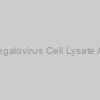 Cytomegalovirus Cell Lysate Antigen |
|
CMV-CL-100 |
The Native Antigen Company |
0.1 |
EUR 223.26 |
|
Description: A clarified cell lysate containing a mix of CMV antigens from all stages of the replication life cycle. |
 Cytomegalovirus Cell Lysate Antigen |
|
CMV-CL-1000 |
The Native Antigen Company |
1.0 |
EUR 1422.47 |
|
Description: A clarified cell lysate containing a mix of CMV antigens from all stages of the replication life cycle. |
 ELISA Kit) Human Prostate Stem Cell Antigen (PSCA) ELISA Kit |
|
DLR-PSCA-Hu |
DL Develop |
96T |
EUR 463 |
|
|
|
Description: tissue homogenates, cell lysates or other biological fluids. |
 ELISA Kit) Human Prostate Stem Cell Antigen (PSCA) ELISA Kit |
|
DLR-PSCA-Hu-48T |
DL Develop |
48T |
EUR 620.4 |
|
|
|
Description: A sandwich quantitative ELISA assay kit for detection of Human Prostate Stem Cell Antigen (PSCA) in samples from tissue homogenates, cell lysates or other biological fluids. |
 ELISA Kit) Human Prostate Stem Cell Antigen (PSCA) ELISA Kit |
|
DLR-PSCA-Hu-96T |
DL Develop |
96T |
EUR 807.6 |
|
|
|
Description: A sandwich quantitative ELISA assay kit for detection of Human Prostate Stem Cell Antigen (PSCA) in samples from tissue homogenates, cell lysates or other biological fluids. |
 Human PSCA/ Prostate stem cell antigen ELISA Kit |
|
E2067Hu |
Sunlong |
1 Kit |
EUR 515 |
|
|
|
Description: UNQ206/PRO232 |
 ELISA Kit) Human PSCA(Prostate Stem Cell Antigen) ELISA Kit |
|
ELK3884-48T |
ELK Biotech |
48T |
Ask for price |
|
|
|
Description: The test principle applied in this kit is Sandwich enzyme immunoassay. The microtiter plate provided in this kit has been pre-coated with an antibody specific to Human PSCA. Standards or samples are added to the appropriate microtiter plate wells then with a biotin-conjugated antibody specific to Human PSCA. Next, Avidin conjugated to Horseradish Peroxidase (HRP) is added to each microplate well and incubated. After TMB substrate solution is added, only those wells that contain Human PSCA, biotin-conjugated antibody and enzyme-conjugated Avidin will exhibit a change in color. The enzyme-substrate reaction is terminated by the addition of sulphuric acid solution and the color change is measured spectrophotometrically at a wavelength of 450nm ± 10nm. The concentration of Human PSCA in the samples is then determined by comparing the OD of the samples to the standard curve. |
 ELISA Kit) Human PSCA(Prostate Stem Cell Antigen) ELISA Kit |
|
ELK3884-96T |
ELK Biotech |
96T |
Ask for price |
|
|
|
Description: The test principle applied in this kit is Sandwich enzyme immunoassay. The microtiter plate provided in this kit has been pre-coated with an antibody specific to Human PSCA. Standards or samples are added to the appropriate microtiter plate wells then with a biotin-conjugated antibody specific to Human PSCA. Next, Avidin conjugated to Horseradish Peroxidase (HRP) is added to each microplate well and incubated. After TMB substrate solution is added, only those wells that contain Human PSCA, biotin-conjugated antibody and enzyme-conjugated Avidin will exhibit a change in color. The enzyme-substrate reaction is terminated by the addition of sulphuric acid solution and the color change is measured spectrophotometrically at a wavelength of 450nm ± 10nm. The concentration of Human PSCA in the samples is then determined by comparing the OD of the samples to the standard curve. |
 Elisa Kit) Human Prostate stem cell antigen(PSCA) Elisa Kit |
|
EK713460 |
AFG Bioscience LLC |
96 Wells |
EUR 0.36 |
 ELISA Kit) Human Prostate Stem Cell Antigen (PSCA) ELISA Kit |
|
EKU06866-5x96T |
Biomatik Corporation |
5x96T |
EUR 3770.55 |
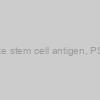 Human Prostate stem cell antigen, PSCA ELISA KIT |
|
ELI-15692h |
Lifescience Market |
96 Tests |
EUR 988.8 |
 ELISA Kit) Human Prostate Stem Cell Antigen (PSCA) ELISA Kit |
|
EKN47977-5x96T |
Biomatik Corporation |
5x96T |
EUR 2569.75 |
 ELISA Kit) Human Prostate Stem Cell Antigen (PSCA) ELISA Kit |
|
DL-PSCA-Hu |
DL Develop |
96T |
EUR 441 |
|
|
|
Description: tissue homogenates, cell lysates or other biological fluids. |
 ELISA Kit) Human PSCA(Prostate stem cell antigen) ELISA Kit |
|
EH2380 |
FN Test |
96T |
EUR 681.12 |
|
|
|
Description: Method of detection: Double Antibody, Sandwich ELISA;Reacts with: Homo sapiens;Sensitivity: 0.188 ng/ml |
 ELISA Kit) Human Prostate stem cell antigen (PSCA) ELISA Kit |
|
abx571274-96tests |
Abbexa |
96 tests |
EUR 886.8 |
|
|
 ELISA Kit) Human Prostate stem cell antigen (PSCA) ELISA Kit |
|
AE25565HU-48Tests |
Abebio |
48 Tests |
EUR 325 |
|
|
|
Description: Human (Homo sapiens) |
 ELISA Kit) Human Prostate stem cell antigen (PSCA) ELISA Kit |
|
AE25565HU-96Tests |
Abebio |
96 Tests |
EUR 610 |
|
|
|
Description: Human (Homo sapiens) |
 ELISA kit) Human Prostate stem cell antigen(PSCA) ELISA kit |
|
CSB-EL018840HU-24T |
Cusabio |
1 plate of 24 wells |
EUR 198 |
|
|
|
Description: Quantitativesandwich ELISA kit for measuring Human Prostate stem cell antigen (PSCA) in samples from serum, plasma, tissue homogenates, cell lysates. A new trial version of the kit, which allows you to test the kit in your application at a reasonable price. |
 ELISA kit) Human Prostate stem cell antigen(PSCA) ELISA kit |
|
1-CSB-EL018840HU |
Cusabio |
-
Ask for price
-
Ask for price
-
Ask for price
|
- 1 plate of 96 wells
- 10 plates of 96 wells each
- 5 plates of 96 wells each
|
|
|
|
Description: Quantitativesandwich ELISA kit for measuring Human Prostate stem cell antigen(PSCA) in samples from serum, plasma, tissue homogenates, cell lysates. Now available in a cost efficient pack of 5 plates of 96 wells each, conveniently packed along with the other reagents in 5 separate kits. |
Autosomal-recessive inheritance accounts for almost 25% of nonsyndromic psychological retardation (MR), however the excessive heterogeneity of such circumstances markedly hampers gene identification.
Combining autozygosity mapping and RNA expression profiling in a consanguineous Tunisian household of three MR youngsters with delicate microcephaly and white-matter abnormalities recognized the TRAPPC9 gene, which encodes a NF-kappaB-inducing kinase (NIK) and IkappaB kinase advanced beta (IKK-beta) binding protein, as a probable candidate. Sequencing evaluation revealed a nonsense variant (c.1708C>T [p.R570X]) inside exon 9 of this gene that’s liable for an undetectable stage of TRAPPC9 protein in affected person pores and skin fibroblasts.
